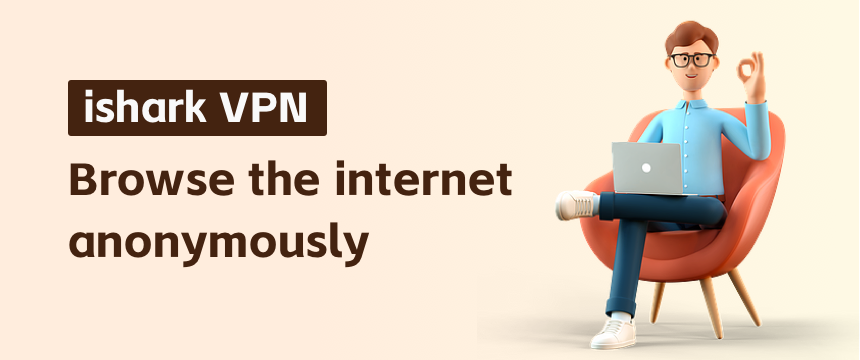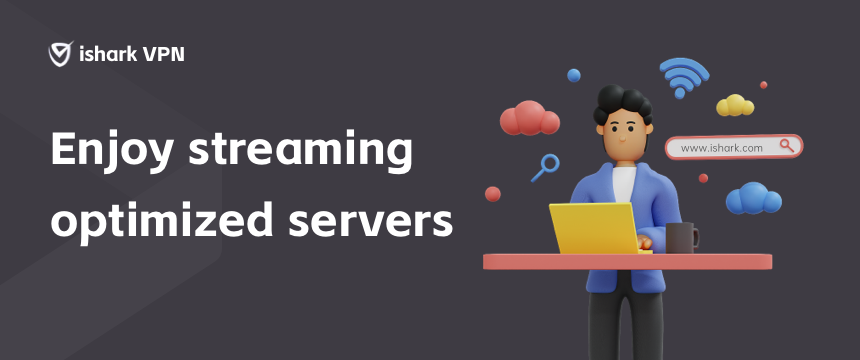VPN in Travel and Public Wi-Fi Networks: Ensuring Security Protection
ishark blog article
In today's highly interconnected world, travel has become an integral part of many people's lives, and the importance of staying connected while on the go cannot be overstated.
However, using public Wi-Fi networks during travel can expose travelers to significant cybersecurity risks.
Hackers and malicious users can exploit unsecured public Wi-Fi networks to steal personal information, data, and login credentials, leading to data breaches, identity theft, and financial loss.
To safeguard travelers' network security and data privacy, an increasing number of individuals are recognizing the importance of using Virtual Private Networks (VPN) while traveling and accessing public Wi-Fi networks.
This article explores the network security risks during travel and on public Wi-Fi networks, emphasizes the importance of VPN in protecting personal information and data privacy while traveling, addresses potential speed and stability issues with using VPN on public Wi-Fi networks, and provides recommendations to enhance user experience and security awareness for travelers using VPN.

Network Security Risks during Travel and on Public Wi-Fi Networks
During travel, many individuals prefer to use public Wi-Fi networks for convenient internet access, social media interaction, online transactions, and various applications.
However, these public Wi-Fi networks often lack encryption, making personal information and data vulnerable to hackers. The following are the network security risks that travelers may encounter:
Data Theft: Hackers can exploit unsecured public Wi-Fi networks to steal users' login credentials, credit card information, and sensitive personal and business data.
Man-in-the-Middle Attacks: Malicious users can set up rogue Wi-Fi hotspots, masquerading as public Wi-Fi networks, to intercept users' data traffic.
Session Hijacking: Hackers can hijack users' online sessions and impersonate them to perform unauthorized activities.
The Importance of VPN in Protecting Personal Information and Data Privacy while Traveling
A Virtual Private Network (VPN) is an effective network security tool that protects users' personal information and data privacy by encrypting data transmission and concealing real IP addresses. During travel, using a VPN provides the following critical protections:
Data Encryption: VPN employ encryption technology to transform users' data transmissions into ciphered data, making it challenging for hackers to access and decipher sensitive information.
IP Address Concealment: VPN hide users' real IP addresses, making their online activities on public Wi-Fi networks less traceable and trackable.
Secure Tunnels: VPN establish secure tunnels between users and servers, preventing data from being eavesdropped or tampered with during transmission.
Addressing Potential Speed and Stability Issues with Using VPN on Public Wi-Fi Networks
While VPN offer significant security protection during travel, using VPN on public Wi-Fi networks may sometimes result in speed and stability issues. Here are some recommendations to address these issues:
Choose Reliable VPN Service Providers: Select tested and well-reputed VPN service providers to ensure fast and stable connections.
Opt for Nearby Server Connections: Choose VPN servers that are geographically close to the user to improve connection speed and reduce latency.
Select Appropriate VPN Protocols: In different network environments, select suitable VPN protocols, such as OpenVPN or WireGuard, to achieve optimal performance.

Enhancing User Experience and Security Awareness for Travelers Using VPN
To enhance the user experience and security awareness of travelers using VPN, consider the following measures:
Provide VPN Setup Guides: Offer travelers easy-to-understand VPN setup guides to help them configure and use VPN correctly.
Promote Multi-Platform Support: Ensure VPN services support multiple devices and operating systems, enabling travelers to use VPN on various devices.
Security Awareness Education: Strengthen travelers' awareness of network security, teaching them how to identify and avoid potential cybersecurity risks and emphasizing the importance of using VPN for protection.
Conclusion:
Safeguarding personal information and data privacy is crucial when traveling and accessing public Wi-Fi networks. Virtual Private Networks (VPN) serve as an effective network security tool, offering critical protection by encrypting data transmission and concealing real IP addresses.
Addressing potential speed and stability issues with using VPN on public Wi-Fi networks enhances user experience.
By providing VPN setup guides and promoting security awareness education, travelers can better protect their network security while on the go.









